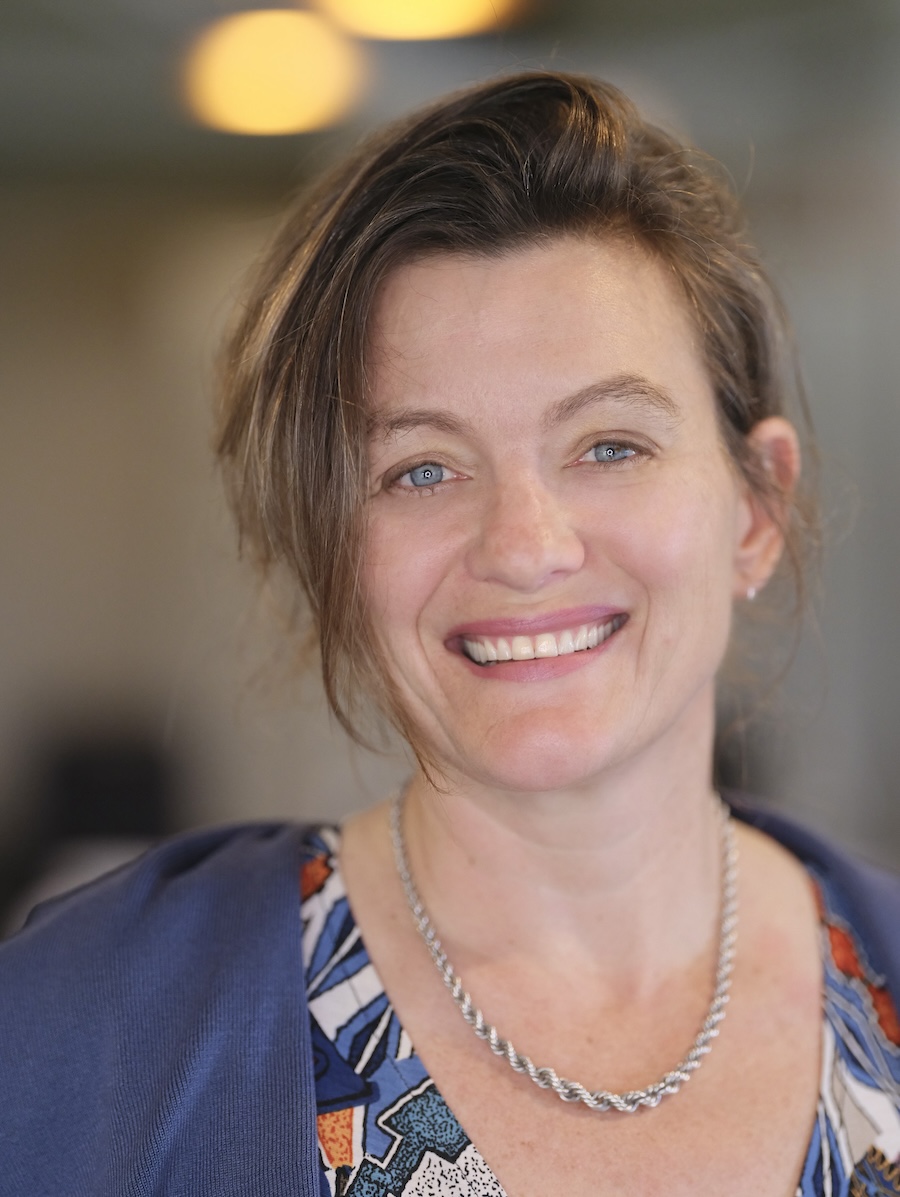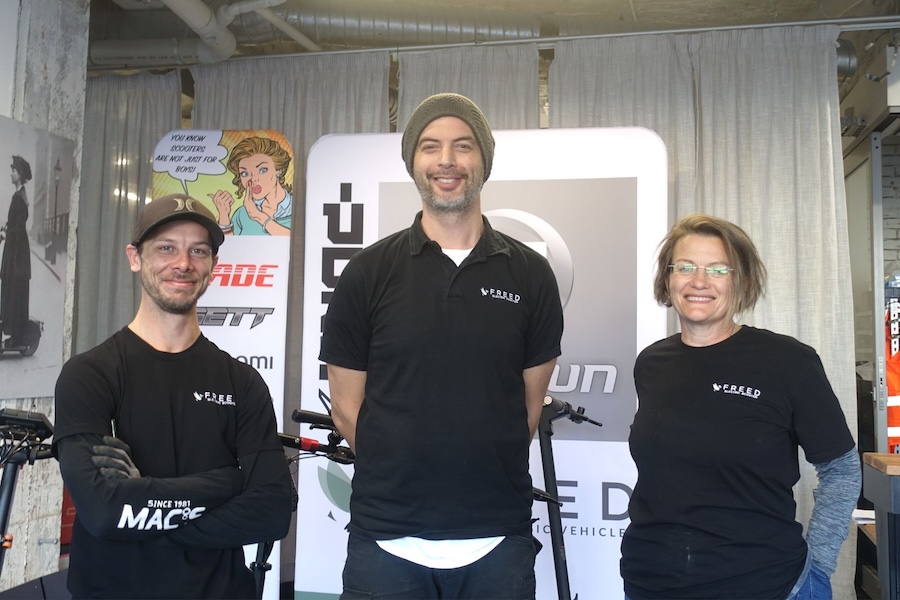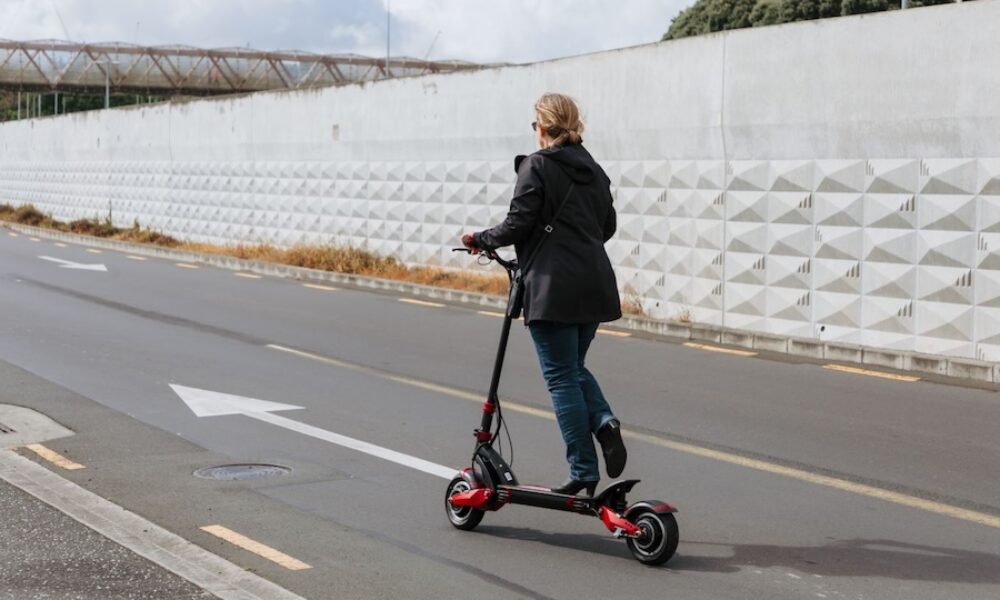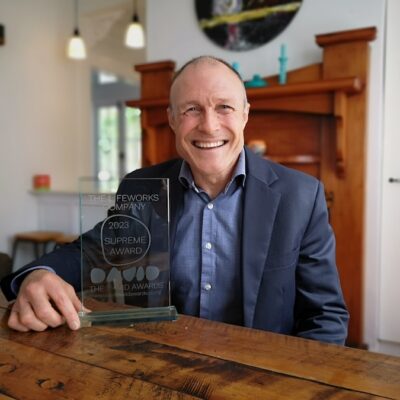Owning the electric dream
After successful careers in teaching and video editing, Jen Hobbs has discovered her true calling in micromobility. Her business goal is to contribute to a safer inner city transport network for Auckland while helping reduce stress in peoples’ lives.
When Jen Hobbs initially set out to buy what she describes as the ideal business to cut her teeth on, personal electric vehicles (PEVs) and micromobility was just in its infancy in New Zealand’s largest city.
Today, despite the challenging business environment, she believes the country is already well on the way to the mass adoption of PEVs.
Jen is no environmental activist, but she is a genuine ‘greenie’ at heart. And when it comes to caring for the environment, she describes her approach as pragmatic.
“I was looking for a business that sat well with my personal values, and I wanted to be part of the shift to more sustainable transport modes,” she recalls. “I have also cycled around Auckland city my whole life and wish more people would leave their car at home more often.
“It annoys me that everybody is so focused on their car that the city is just too dangerous for anyone else to move around in.”
However, in the CBD, with the addition of more cycle and transit lanes, Jen believes it’s now easy to get around faster on a bike or a scooter.
She admits that it gives her “great pleasure” to know that her business is helping to take cars off inner city roads. A long-time e-scooter rider herself, Jen says the run home from work is so good for her mental state. “It gives me a chance to de-stress. Being outdoors, as everyone knows, is good for your mental health.”
Catching the tiger by the tail

After launching her third career in 2020 as the owner of Freed, and with two full-time staff running the Nelson Street workshop, Jen has found that her biggest challenge in running the business is being across everything all the time. “After I bought it, Freed grew by 60 percent in the first 12 months – I felt I had caught a tiger by the tail,” she remembers.
Learning all the different aspects of the business, both technical and operational, was a real test. “Learning to let go of the stress took some time too.”
A big lesson around growing Freed has been around managing its online presence.
Jen reminds other startups that just because you have an online store does not mean you are an e-commerce business. “I have learned that my online store is mostly an advertising and information tool that attracts people into my bricks and mortar store.”
Online sales, which are mostly from outside of Auckland, have a high risk of fraud, says Jen.
“I’ve tried a few different approaches and worked with some great people, but in the end the returns were not there from online sales, so I ended up just learning about it and doing as much as possible myself.”
Jen’s first experience at business ownership has also taught her that there are a lot of predatory businesses out there. “They prey on small business owners who might be struggling to do everything. They promise outcomes and just don’t deliver. Many outright lie. So, I avoid fixed term contracts and insist on out-clauses when I do sign one.”
A strategy for market leadership
Success for Freed has come through having “genuinely excellent after-sales service and repairs” through its workshop and “quality brands that are well supported”.
“We don’t do hard sell. We look at what a person’s needs are and then direct them to the scooter that suits them best, even if it’s not one we sell,” explains Jen.
She avoids the low-price high turnover sector as it’s not sustainable. “Department store brands tend to be cheap, disposable brands. Those kinds of businesses are trying to avoid the need to repair. When their products do need repairing, we find they are difficult to work on and parts are hard to get.”
Although e-scooters and PEVs have been around for some years now, micromobility is still in its infancy and there’s room for growth. Jen is also considering EV battery upgrades and vehicle conversions as future revenue opportunities.
Indeed, with help from her partner, she successfully replaced the battery cells on her 2013 Nissan Leaf – tripling the output from 24kW to 62kW!
Looking ahead, Jen’s plan for Freed is to offer more products and services around PEVs and batteries. However, in these tough economic times the business is sticking mainly with e-scooters and has tentatively begun importing three and four-wheel EVs for adults.
“These include a seated electric trike for people experiencing declining mobility and a standup four-wheel e-scooter for the golf course or people who don’t ride a bike and therefore don’t have the experience to easily ride a two-wheeler.”
Looking back, does Jen have any regrets about taking on a business?
“It’s not as hard as I thought it would be, so I wish I had done it much sooner,” she admits.
“It has been a challenge and a huge learning curve, but also lots of fun. And although it can be overwhelmingly busy and I work more now than ever before, I like the small freedoms it offers.
“I also love offering a product I really believe in. I’m proud that almost every e-scooter I sell is taking another car off the road at rush hour!”
Micromobility vs Auckland’s congestion
Micromobility, which involves vehicles carrying a single passenger, is prompting a mode shift in how people navigate cities. Jen says 85 percent of Freed’s 5000 customers commute to and from work and they love it. Feedback is all around making life easier, cheaper and more fun.
She says positives are centred on the number of vehicles kept off Auckland’s roads, the impact on noise and air pollution, the savings, the creation of a safer transport network, and the better ROI on the city’s transport infrastructure.
“Our streets are a ton nicer when there are fewer vehicles. I have one customer who has a dedicated CBD carpark and chooses to scooter, just because it is more fun.”
Micromobility delivers a positive contribution to a large city’s economy in a number of ways, including:
- They’re a cheaper method of getting around (between one cent and 12 cents per kilometre), which means extra cash for spending – hopefully locally.
- They mean fewer cars – so less emissions, less road maintenance and faster travel times for everyone else.
- With more people out and about locally, more gets spent locally. Malls and shopping precincts that provide secure parking facilities for micro transport benefit from more customers.
- Micromobility also benefits SMEs, by helping their employees get to work economically and efficiently without the need to provide expensive parking.
Jen says Freed has clients that own small fleets of e-scooters – perhaps to get employees around a large campus or from one meeting to another.
“E-scooters are particularly popular with property managers and workers in the CBD as they are compact enough to take into buildings.”

Read more: Broader thinking needed on sustainable business practices
Micromobility’s bright future
It’s true that there’s still a knee-jerk fear of change out there, and electric vehicles of any kind still scare some people off. It’s also true that regulators are often slow to incorporate new technology or assist with its easy uptake.
However, Jen believes that PEVs are way more sustainable than traditional cars. They are easier, cheaper and more enjoyable to use on our congested city streets.
“Over time we will see better designs enabling a wider range of people to feel comfortable with personal electric vehicles. We will also see things like briefcase scooters emerge, and bubble cars that carry one person with room for a passenger or some luggage.
“I think better safety features and more protection from the elements will eventually appear too.”
Jen’s excited about the prospect of safer and more sustainable battery technologies in the near future, and the recycling of rare earth minerals and other battery components within a circular economy. Will that be the direction she’ll take with her business?
Jen has an open mind about all of it. Right now, she’s too busy growing Freed and just loving her third career.







